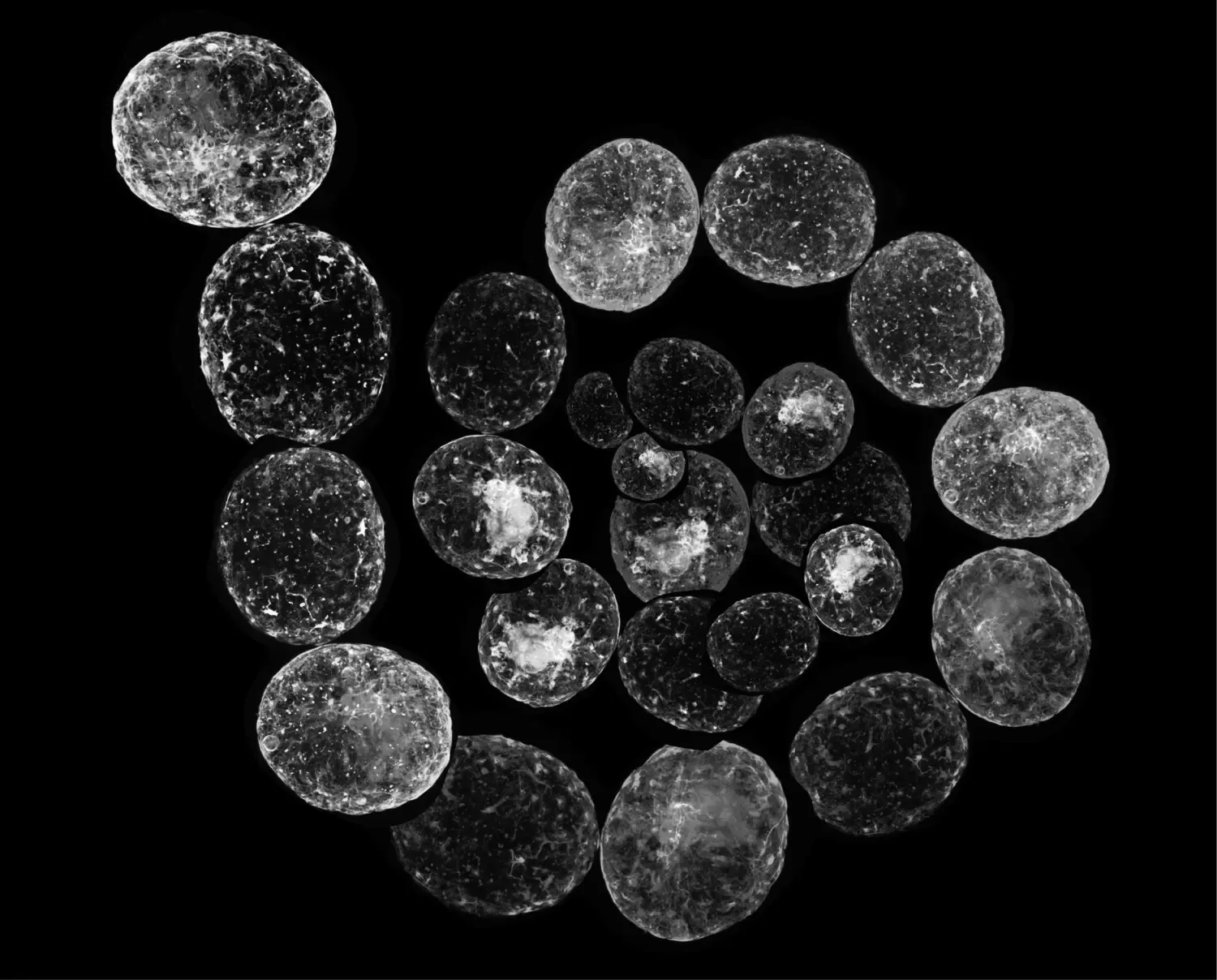
StratRegen - Strategic research area in stem cells and regenerative medicine
Stem cells play an important role in the development of tissues, and for maintenance and regeneration of tissues in adulthood. Research in this field is rapidly expanding our understanding of these processes. Stem cell therapies are established in clinical medicine for malignant as well as for non-malignant conditions and novel therapies are continuously developed and entered in preclinical and clinical trials.
Promoting Research
Outreach
Initiatives
 Photo: Marie Lind
Photo: Marie LindCall for funding - Education, Outreach and Networking support 2026
The SFO will by this call provide funding for education, outreach and networking activities at Karolinska Institutet (KI) based on scope, quality, and the potential to strengthen and develop the field.
This call is closed
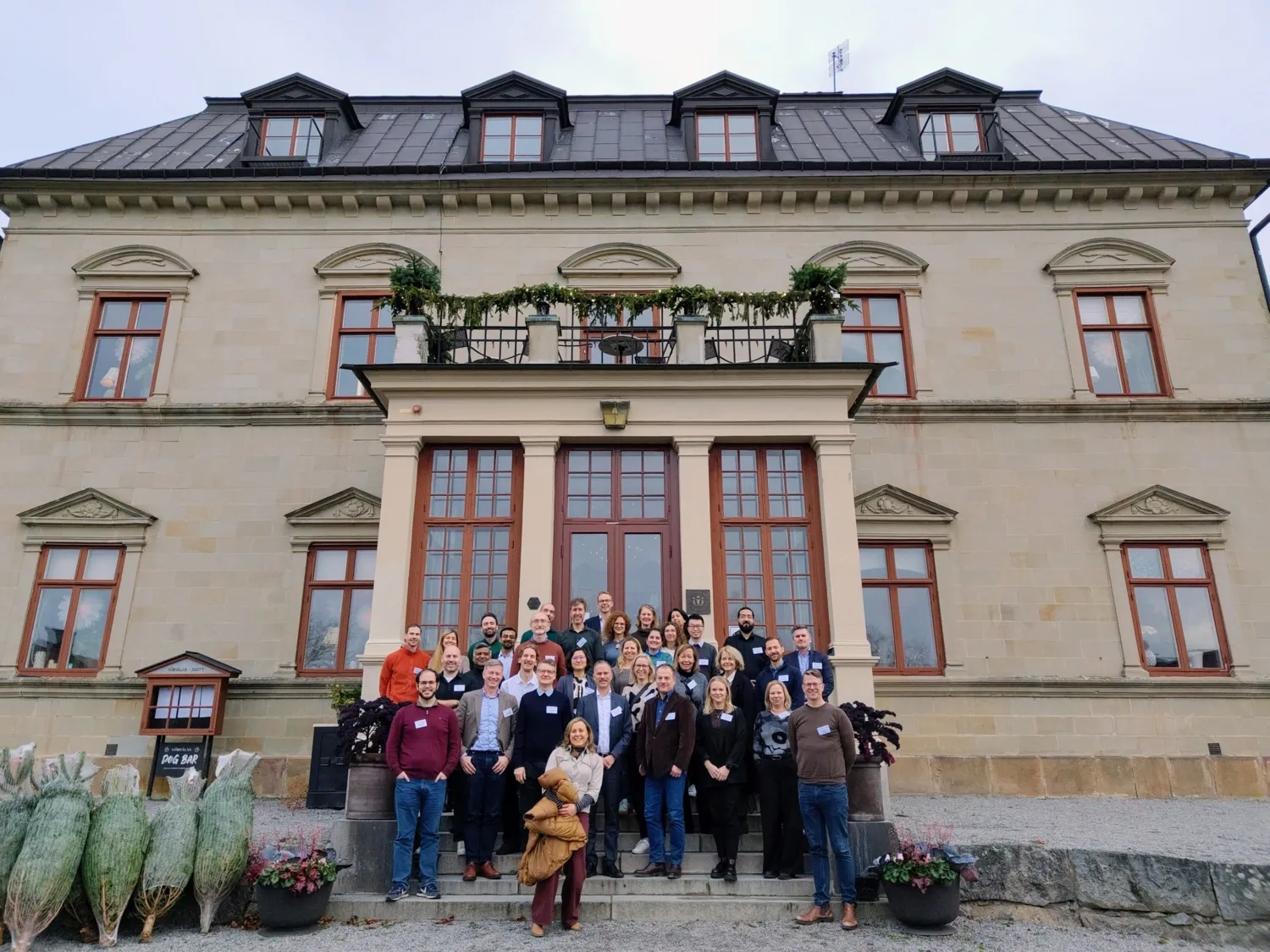 Photo: Daniel Holl
Photo: Daniel HollStratRegen KI - PI Retreat 2025
A big thank you to everyone who took part in the StratRegen PI Retreat on the 11th of November for insightful discussions, constructive ideas, and great energy throughout the day. Together, we took meaningful steps toward shaping the future of our regenerative medicine community.
 Photo: Liza Simonsson/Ashley Seifert
Photo: Liza Simonsson/Ashley SeifertAdvancing Regenerative Medicine at KI
Two infrastructure projects have been selected to receive support from StratRegen, aimed at strengthening Stem Cell and Regenerative Medicine research across KI’s campuses.
New initiatives
Do you have any ideas for new initiatives in the field of stem cells and regenerative medicine, suggestions for innovative collaborations or cutting-edge equipment, that can help drive the field forward?
Send us an e-Mail or talk to the steering group members.
The steering group is committed to implementing new ideas in the upcoming calls.
Promotion
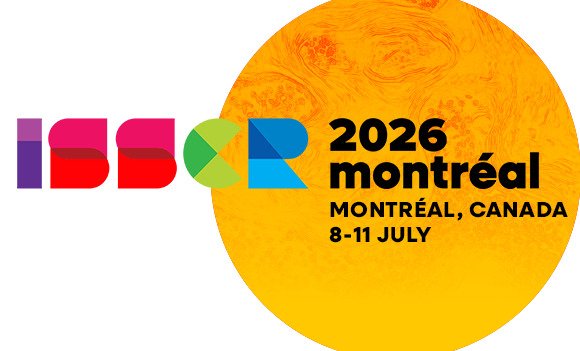 Photo: N/A
Photo: N/AISSCR 2026 Annual Meeting
KI News in Stem Cells and Regenerative Medicine
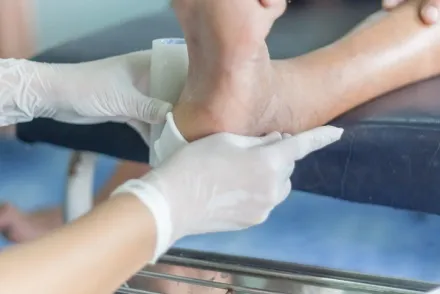
Mitochondrial RNA may contribute to improved wound healing in diabetes
Researchers at Karolinska Institutet have identified a circular RNA in mitochondria that plays an important role in the healing of chronic wounds. The study is published in Advanced Science.
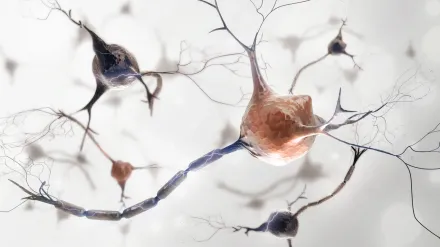
Study maps the role of a master regulator in early brain development
New findings from Karolinska Institutet reveal how the gene HNRNPU coordinates several fundamental molecular processes during the earliest stages of human brain development. The study is published in Nucleic Acids Research and helps explain why children with pathogenic variants in HNRNPU often develop severe neurodevelopmental disorders, including intellectual disability, autism, and epilepsy.
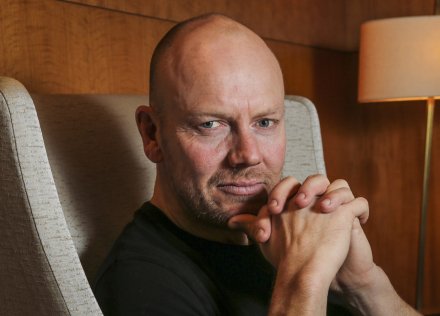
KI and University of Toronto announce two Mats Sundin Fellowships 2026
Karolinska Institutet (KI) and the University of Toronto (U of T) have announced the second cohort of Mats Sundin Fellows in Human Developmental Health for postdoctoral researchers. The two-year exchange programme offers promising young researchers the opportunity to grow and test their wings in other research environments. Behind the initiative is ice hockey legend Mats Sundin, whose engagement lays the groundwork for the next generation of leading researchers.
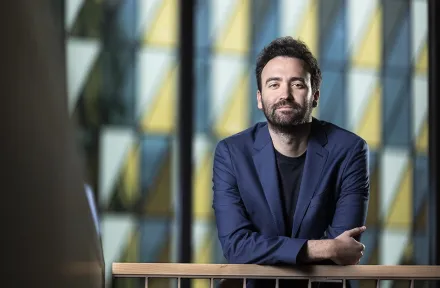
KI researcher teaches nerve cells to regenerate
If a person damages the brain or spine, nerve cells do not regenerate spontaneously. The mechanism has been there since the embryonic stage, but is not activated. Enric Llorens Bobadilla and his research group at Karolinska Institutet are trying to find which genes should be turned on to create new nerve cells. A new film about their work is now available.
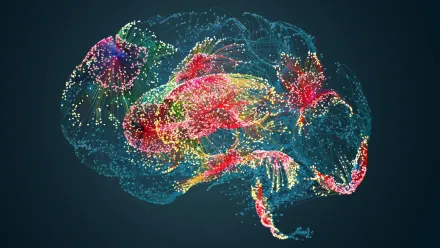
New clues to how human brain connections take shape
A new study from Karolinska Institutet, published in Nature Communications, reveals an unexpected role for immature glial cells known as oligodendrocyte progenitor cells (OPCs) in shaping the developing human brain.
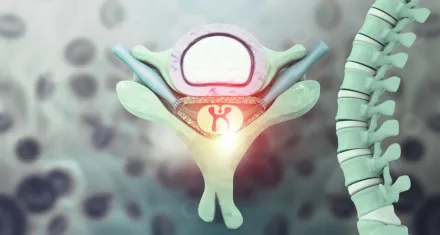
How the nervous system activates repair after spinal cord injury
After a spinal cord injury, cells in the brain and spinal cord change to cope with stress and repair tissue. A new study from Karolinska Institutet, published in Nature Neuroscience, shows that this response is controlled by specific DNA sequences. This knowledge could help develop more targeted treatments.
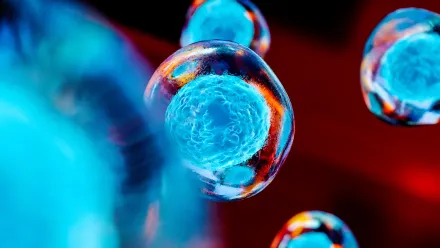
Stem cell therapy reduces fractures in children with congenital brittle bone disease
A new study from Karolinska Institutet and Karolinska University Hospital shows that stem cell therapy can reduce fractures by up to 78 per cent in children with the rare condition osteogenesis imperfecta (OI), also known as congenital brittle bone disease.
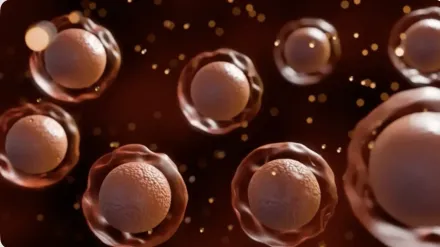
New study reveals surprising diversification of blood stem cells
Researchers from Karolinska Institutet have a new publication in Nature Genetics about their surprising finding.

Scientists map how the brain develops – and how it resolves inflammation
Researchers at Karolinska Institutet and Yale University have created a multidimensional, molecular map of how the mouse brain develops after birth and how it reacts to inflammation. The study, which is published in Nature, shows that some of the molecular programmes that govern brain development can be reactivated in the brain during inflammation.

StratNeuro and StratRegen bring neuroscience and regeneration research to life at ForskarFredag 2025
On Friday, September 26, StratNeuro and StratRegen proudly took part in ForskarFredag in Stockholm, held at AlbaNova and Vetenskapens Hus
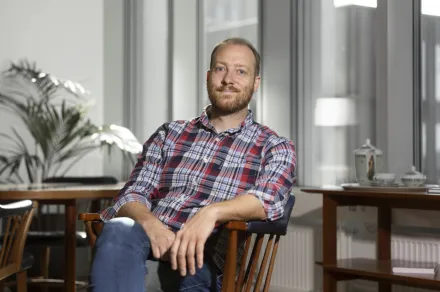
ERC grant for world-leading glaucoma research at KI
Glaucoma is the most common cause of irreversible blindness and affects 80 million people around the world. Pete Williams, researcher at Karolinska Institutet and St Erik Eye Hospital, has now been awarded a prestigious ERC Advanced Grant for his work on new treatments for the disease. The ERC Advanced Grant is one of the most eminent awards a researcher can receive.
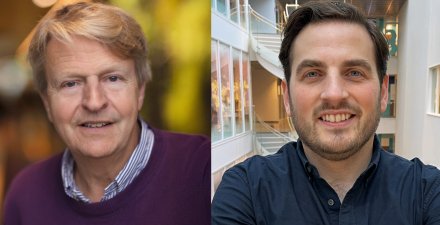
2025 Anders Jahre Award goes to two KI researchers
The prestigious Nordic Anders Jahre Award for 2025 goes this year to two researchers at Karolinska Institutet. Professor Sten Eirik Wælgaard Jacobsen is to receive the Anders Jahre Award for Medical Research for his work on normal and leukemic blood stem cells. William Nyberg is honoured with the Anders Jahre Award for Young Researchers for his work on the development of T-cell immunotherapy for cancer.
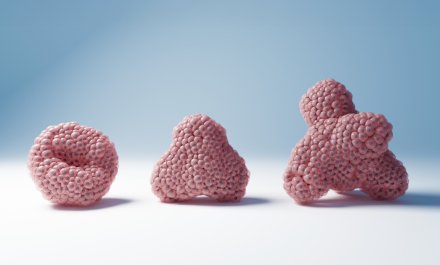
How mini organs can answer difficult research questions
Researchers are getting better at growing miniature organs and embryos in test tubes or on chips. This creates new opportunities for answering research questions while reducing the need for animal testing in some cases.

Mapping the “brain in the gut” may provide clues to gastrointestinal disorders
Researchers at Karolinska Institutet have identified three types of nerve cells connected to the intestinal villi, suggesting that previously unknown neural networks regulate fluid balance in the gut. The findings, published in the journal Nature Neuroscience, could lead to a better understanding of diseases such as irritable bowel syndrome (IBS) and inflammatory bowel disease (IBD).

Pauliina Damdimopoulou, ERC ambassador, appointed professor at KBH
Pauliina Damdimopoulou has been appointed professor at the Department of Women’s and Children’s Health (KBH), Karolinska Institutet.
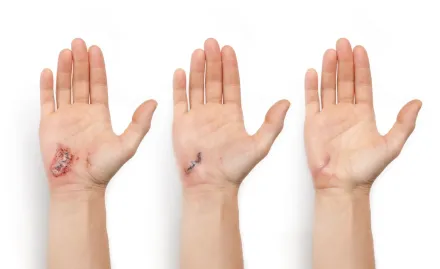
New discovery about circular RNA and wound healing
Researchers at Karolinska Institutet have identified a new mechanism where circular RNA plays a crucial role in wound healing, which could lead to new therapies to improve wound healing and reduce scarring. The study was published in Advanced Science.

Cell atlas of the endometrium in women with PCOS may lead to better treatment
Women with polycystic ovary syndrome (PCOS) find it harder to get pregnant, have more frequent miscarriages and have a higher risk of developing endometrial cancer. Now, in a new study published in Nature Medicine, Swedish researchers have shown that the uterine lining of these women differs in terms of both the composition of individual cells and gene expression. The results open the door to new drug treatments.

Mapping of a gigantic salamander genome reveals secrets of regeneration
Researchers at Karolinska Institutet have mapped the genome of the Iberian ribbed newt and revealed how the composition and organization of the DNA are linked to its ability to regenerate entire body parts.

New study reveals new insights into wound healing
A new study from Karolinska Institutet maps the cellular and molecular dynamics of human wound healing in exceptional detail. The study was published in Cell Stem Cell.
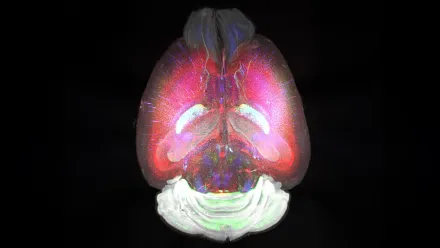
New imaging method enables detailed RNA analysis of the whole brain
Researchers at Karolinska Institutet and Karolinska University Hospital have developed a microscopy method that enables detailed three-dimensional (3D) RNA analysis at cellular resolution in whole intact mouse brains. The new method, called TRISCO, has the potential to transform our understanding of brain function, both in normal conditions and in disease, according to a study in Science.

First molecule identified that promotes gut healing while inhibiting tumour progression
Researchers at Karolinska Institutet have found a molecule that can both help the intestines to heal after damage and suppress tumour growth in colorectal cancer. The discovery could lead to new treatments for inflammatory bowel disease (IBD) and cancer. The results are published in the journal Nature.
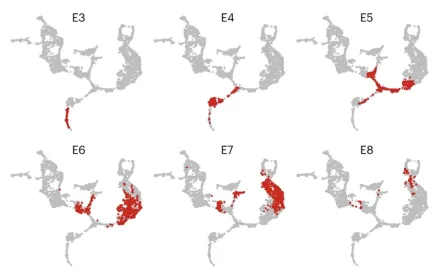
Researchers have created an atlas of human embryonic development
The Petropoulos and Lanner labs at CLINTEC created a reference map of early human embryo development. They also launched an ‘Early Embryogenesis Prediction Tool’ that accurately predicts cell types across different embryonic stages and datasets, with plans to expand as more data becomes available.

The human heart may have a hidden ability to repair itself
After severe heart failure, the ability of the heart to heal by forming new cells is very low. However, after receiving treatment with a supportive heart pump, the capacity of a damaged heart to repair itself with new muscle cells becomes significantly higher, even higher than in a healthy heart. This is according to a new study from Karolinska Institutet published in the journal Circulation.
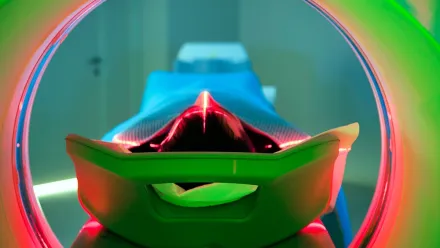
Blocking THBS1 with antibodies may heal radiotherapy induced skin injury
In a recently published study, researchers at Karolinska Institutet and KI University Hospital show that radiotherapy (RT) creates an "epigenetic memory" in skin fibroblasts which impairs skin healing in cancer survivors. They also found that by targeting this memory with antibodies the damage could be reversed. This finding can lead to new therapies for both preventing and treating RT-induced skin issues.

Pauliina Damdimopoulou receives ERC Consolidator Grant for research on women's fertility
KI-researcher Pauliina Damdimopoulou has been awarded a EUR 2 million ERC Consolidator Grant (European Research Council) for the SAFER project (SAfeguarding female FERtility-development of human-relevant in vitro tools for reproductive toxicity). The research will investigate the impact of commonly occurring environmental chemical contaminants on women's reproductive health.
Stem cell legislation
Embryos and embryo models – the need for updated regulations for research on the early development of human life.
The Swedish National Council on Medical Ethics (Smer) urges the government to review the current rules for research on human embryos and stem cell-based embryo models. The regulatory framework needs to be updated to reflect scientific developments in embryo and stem cell research. In particular they suggest that the so-called 14-day rule, should be extended to 28 days.
